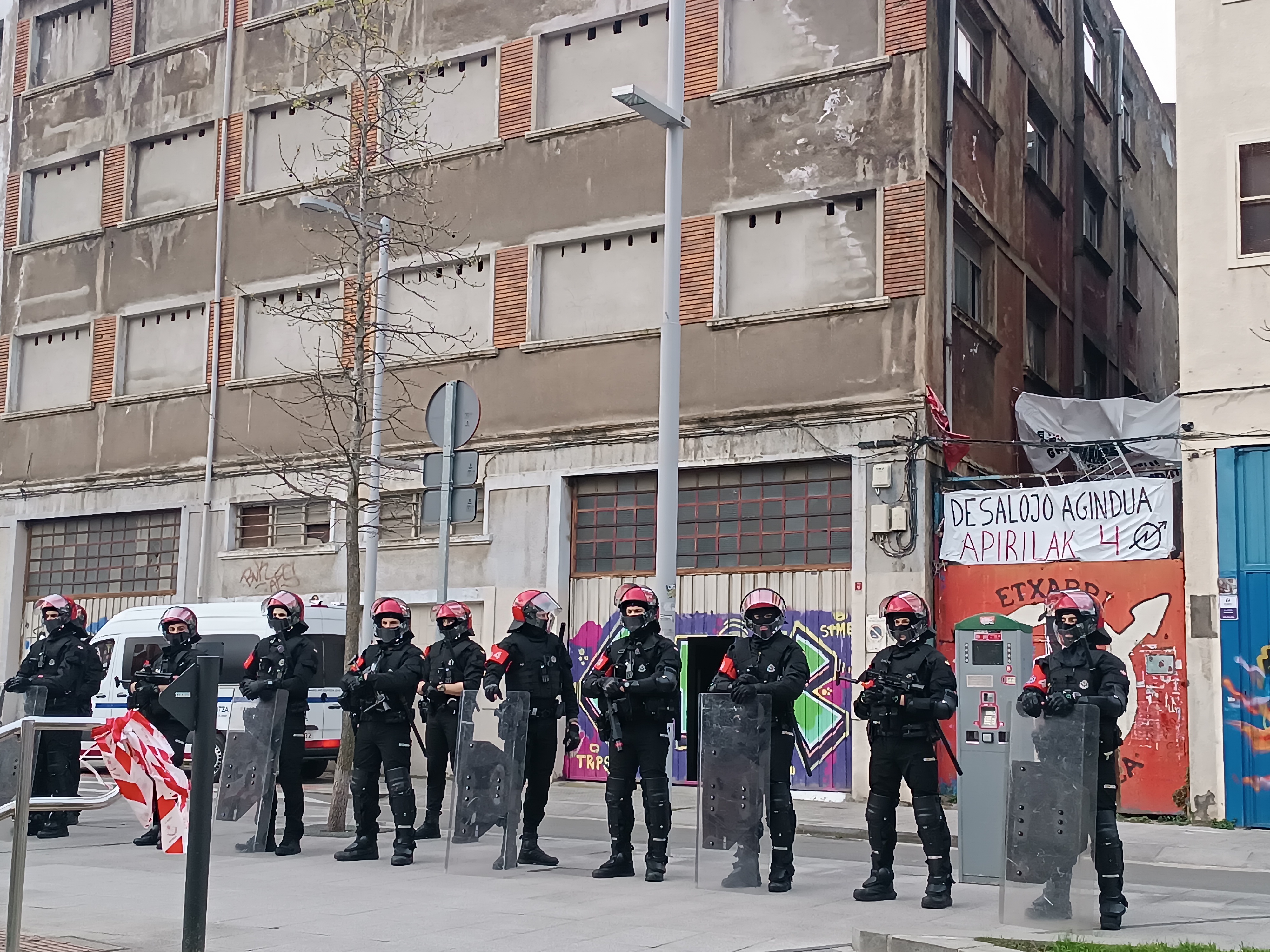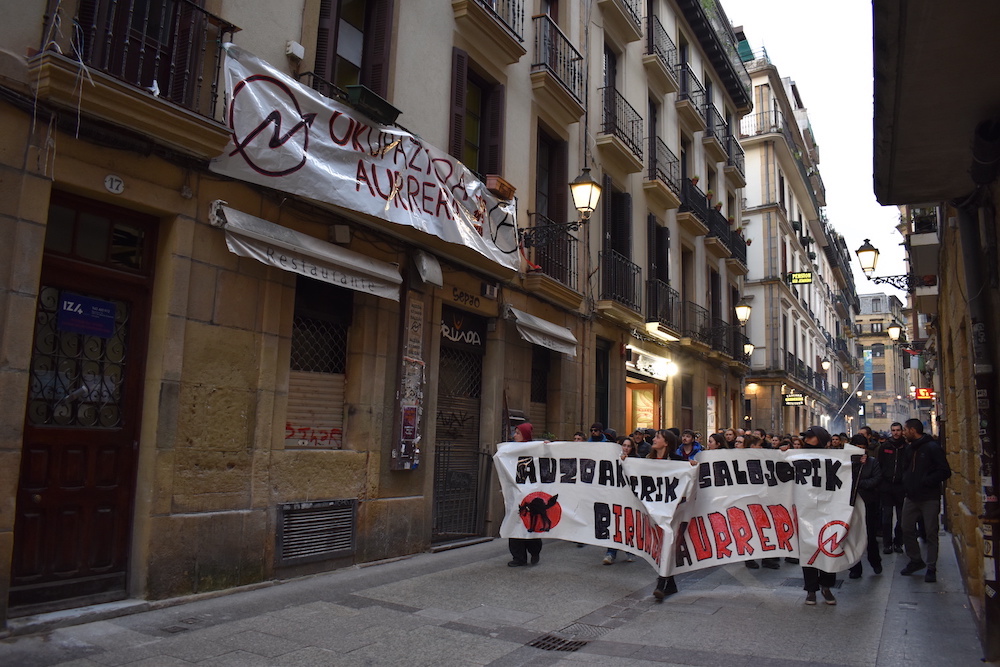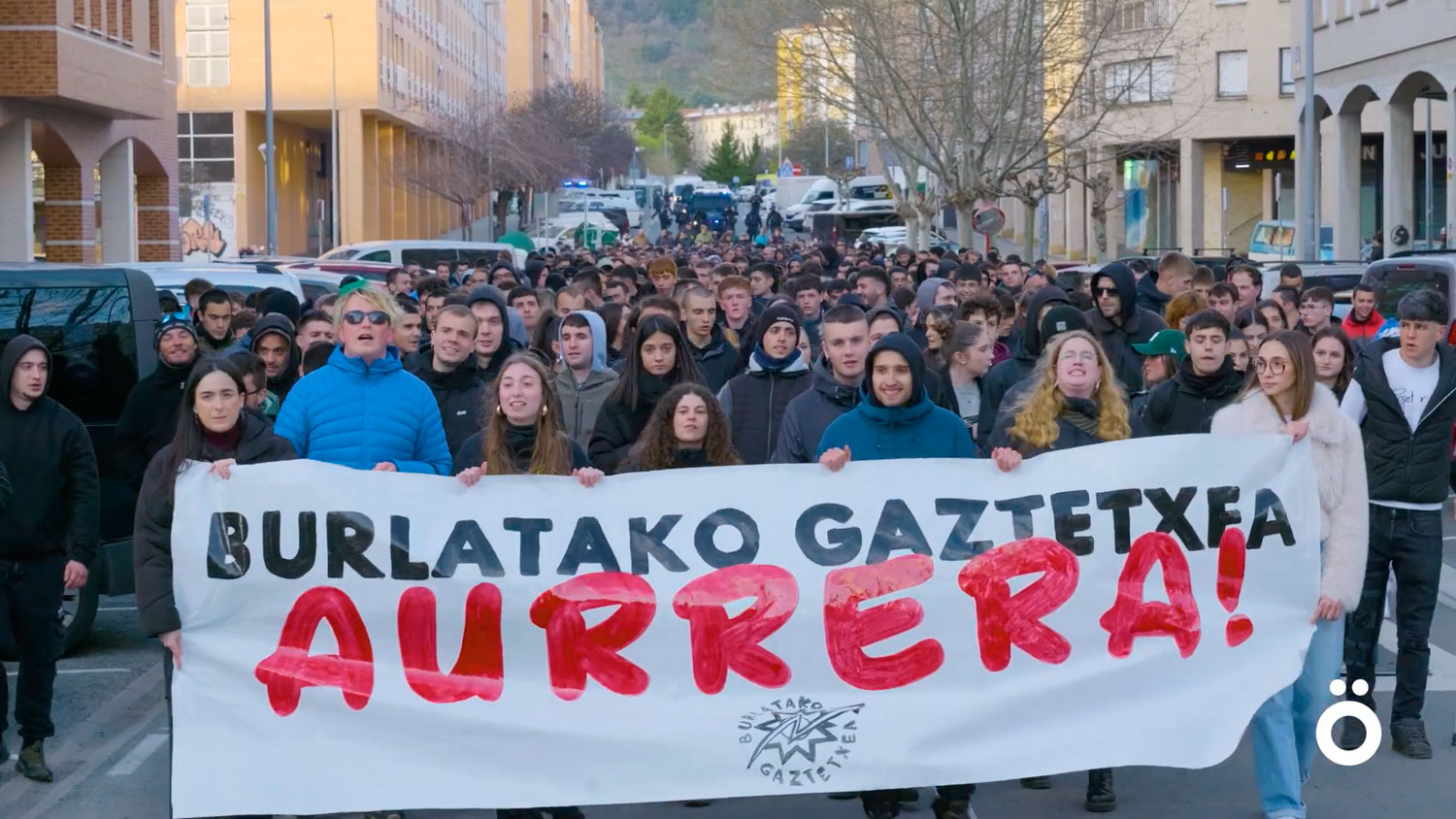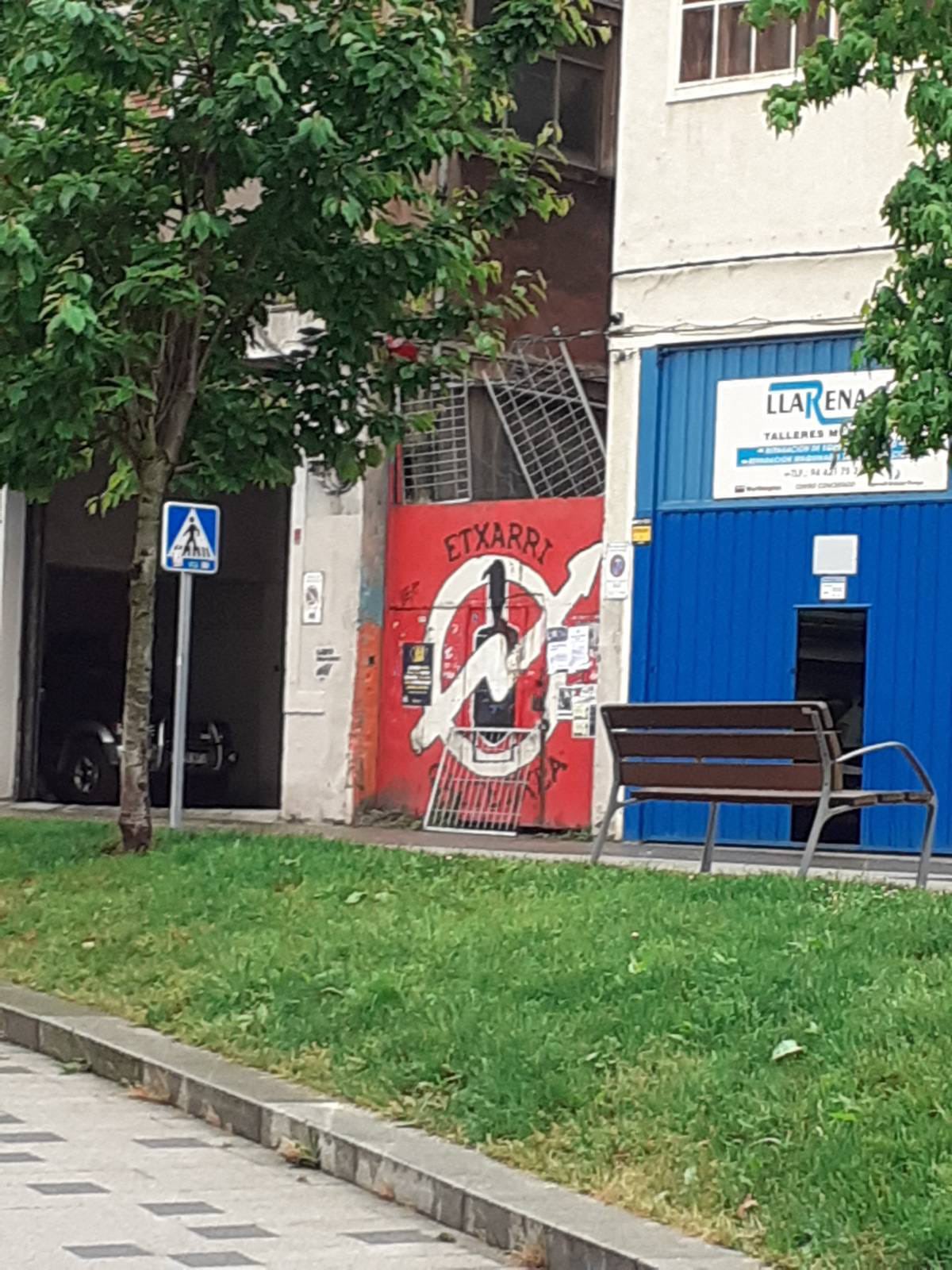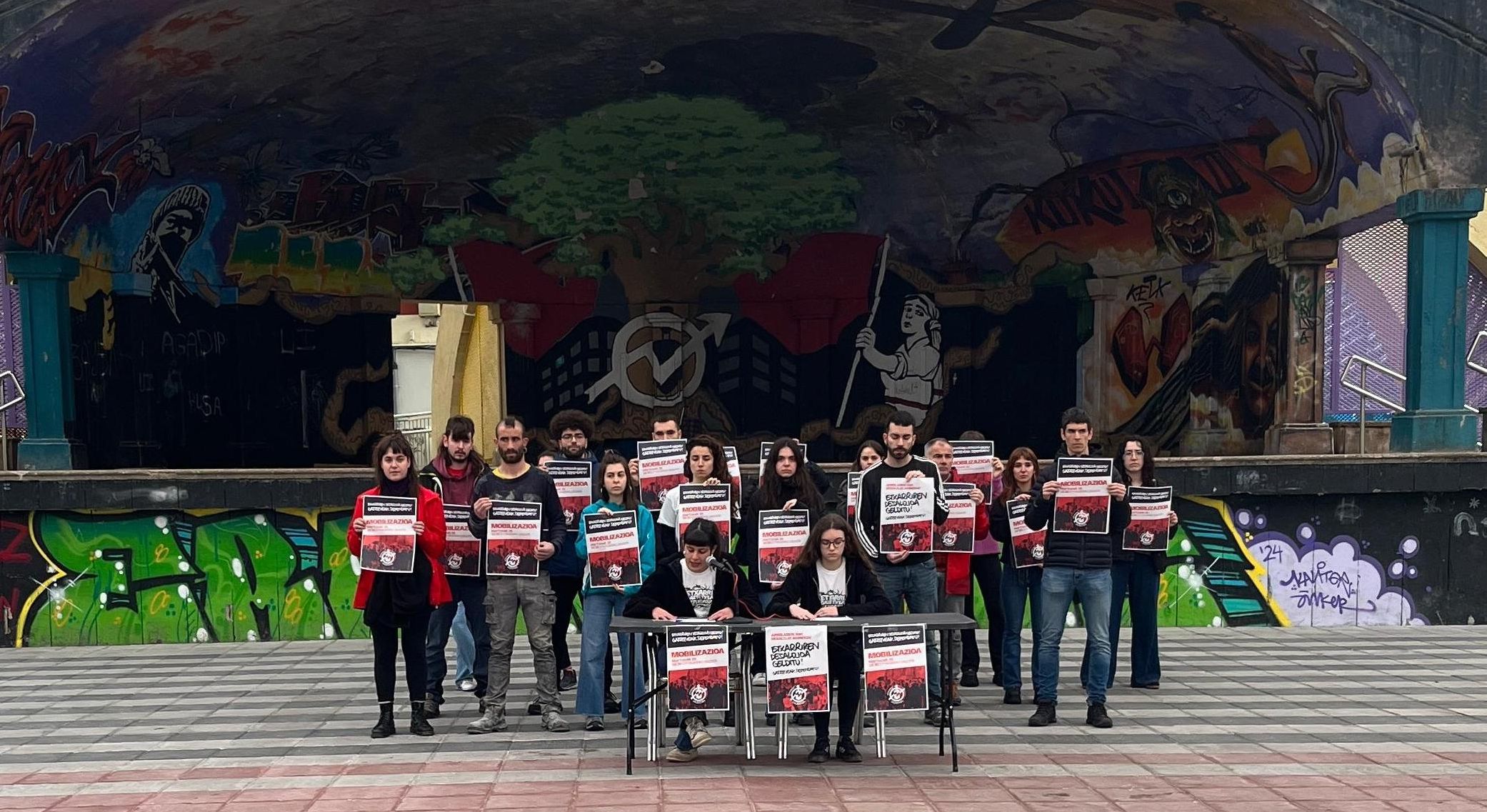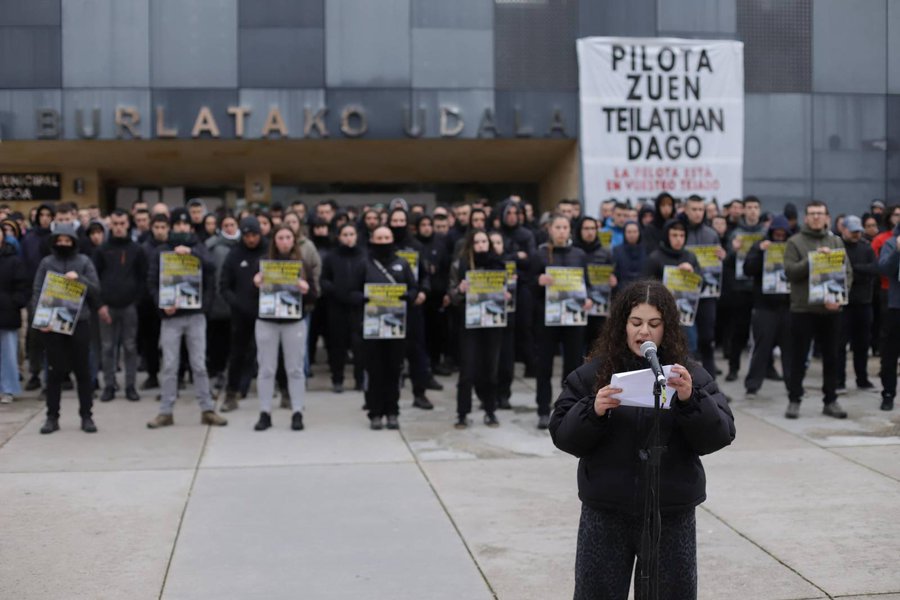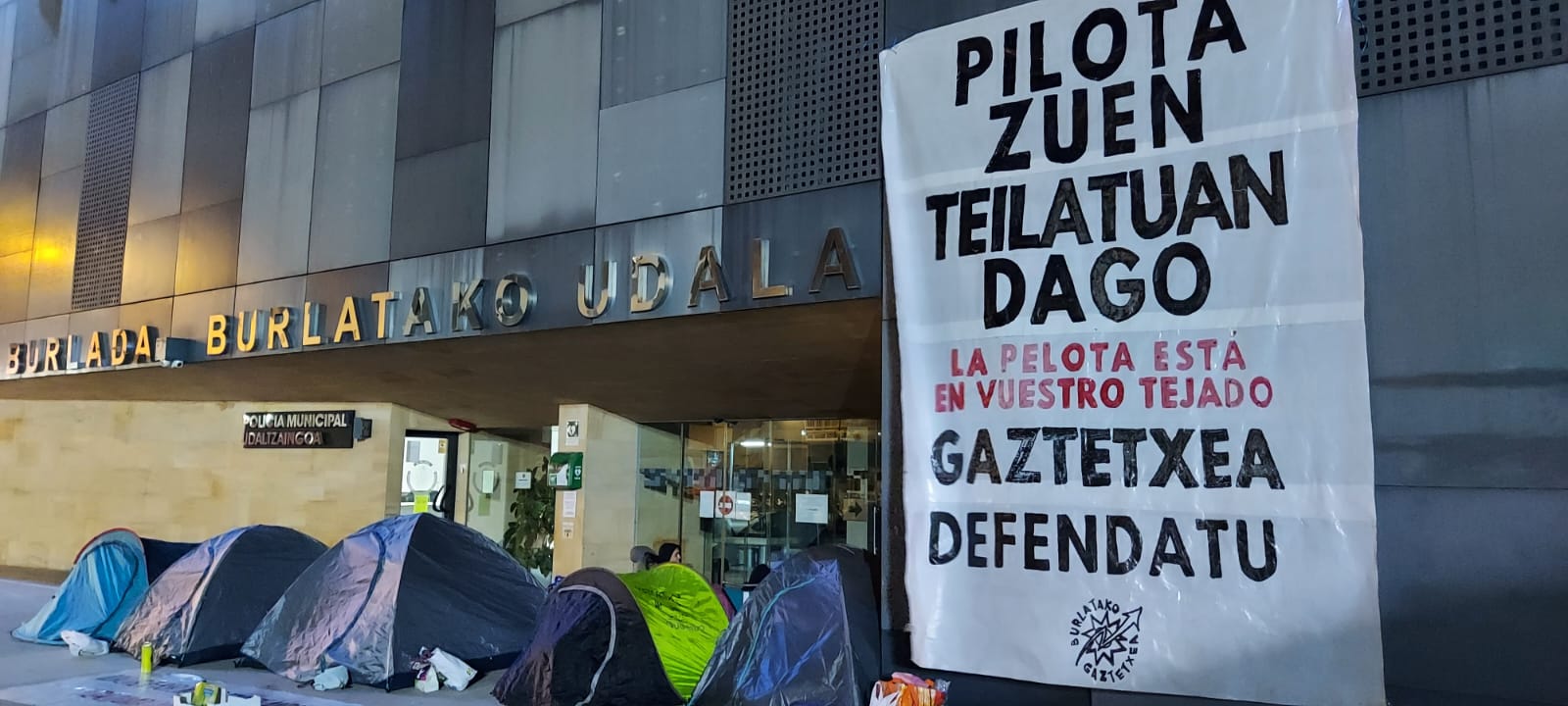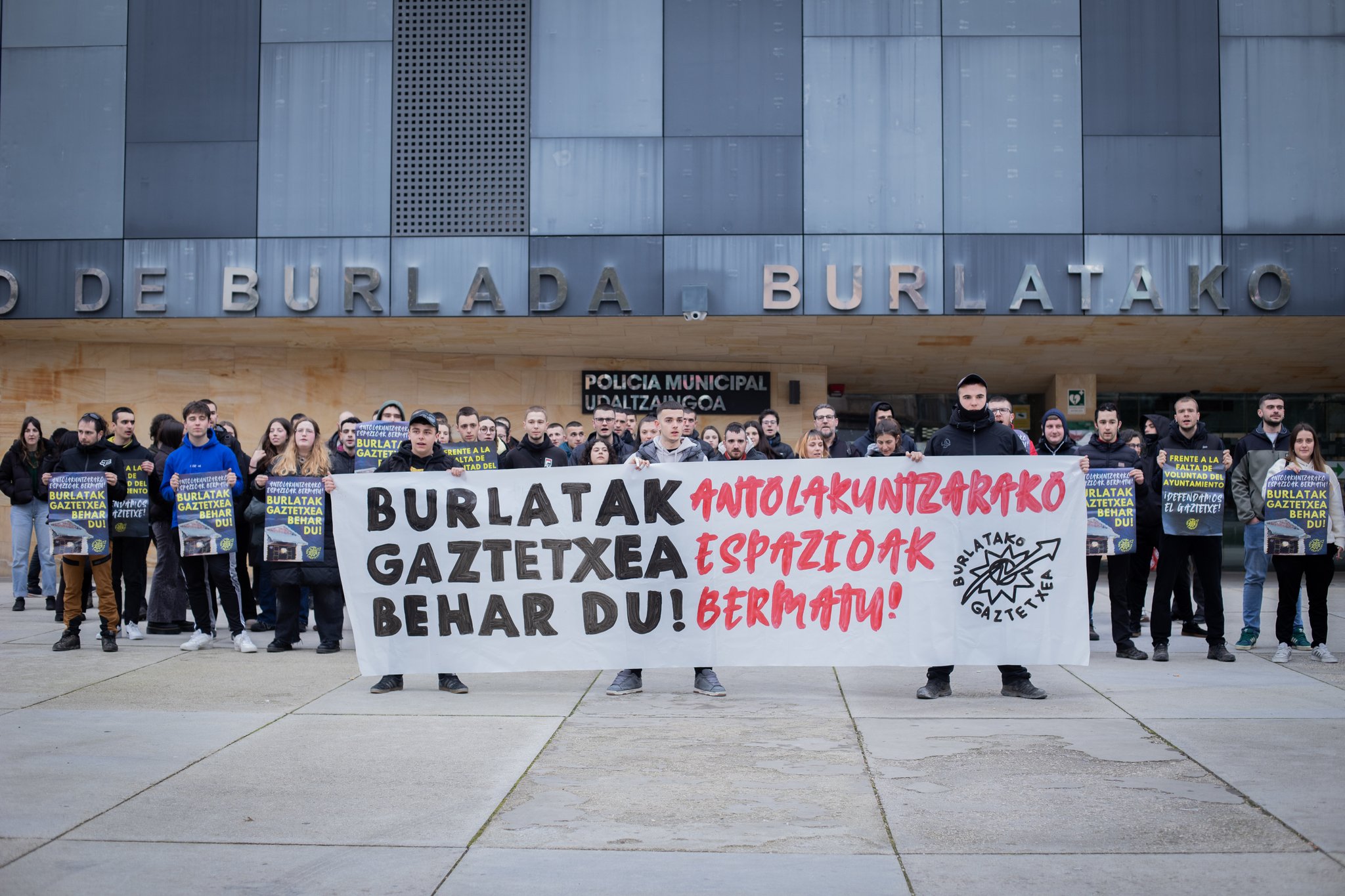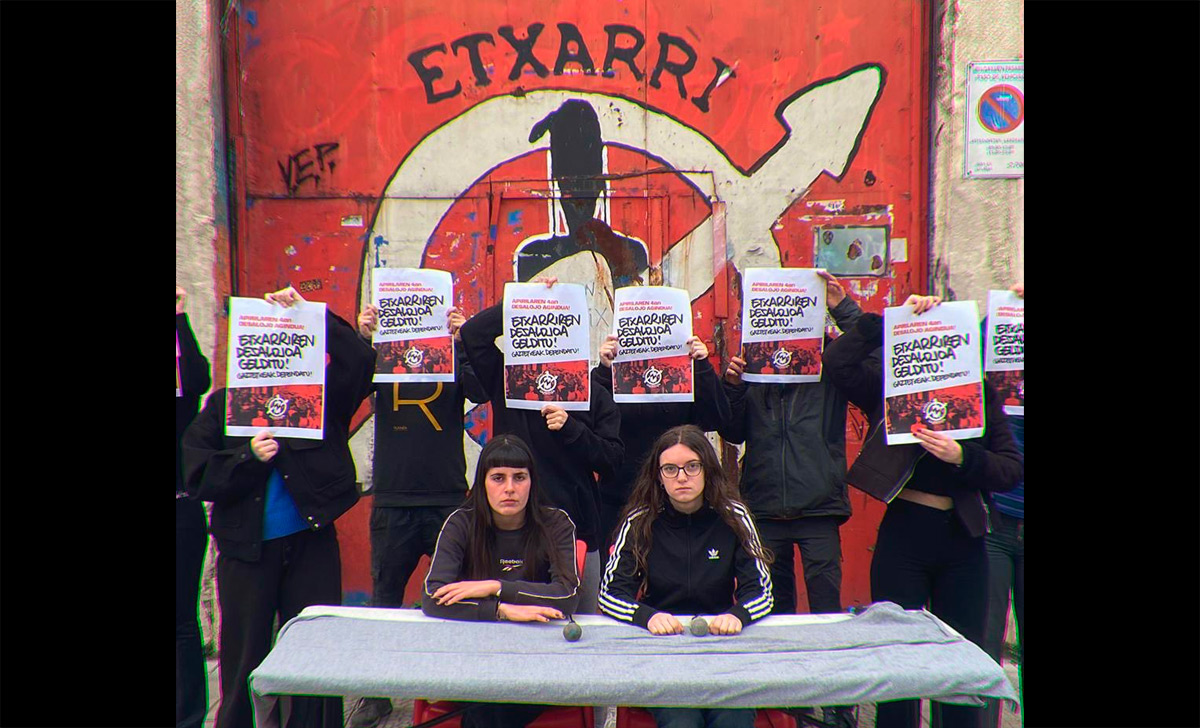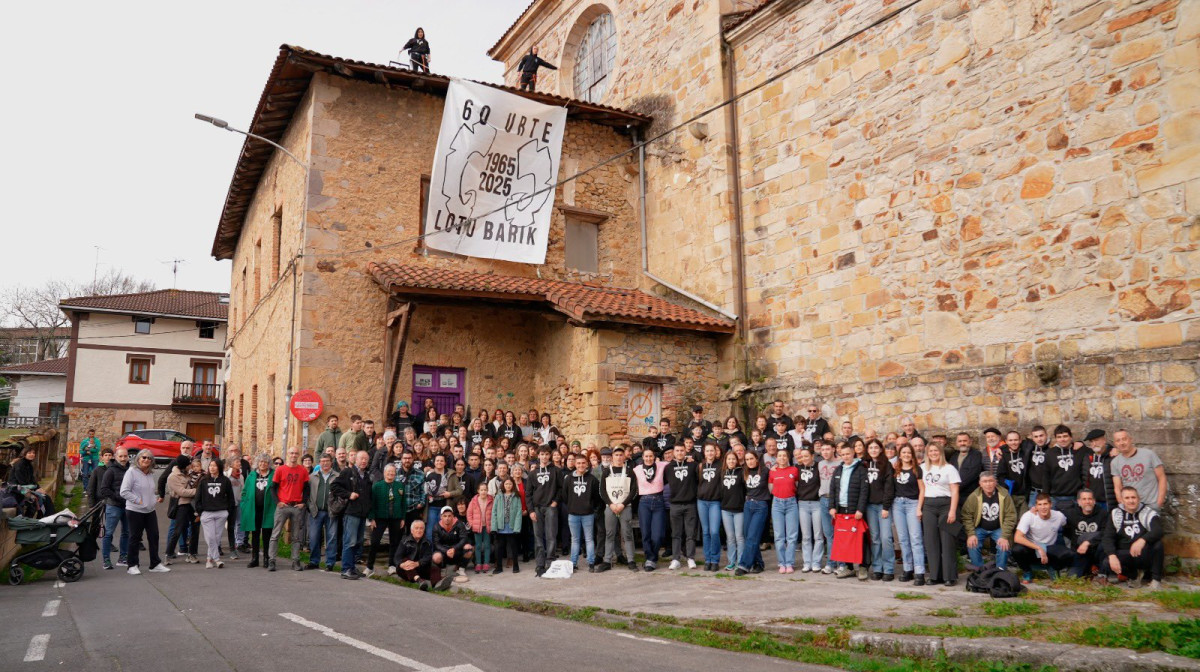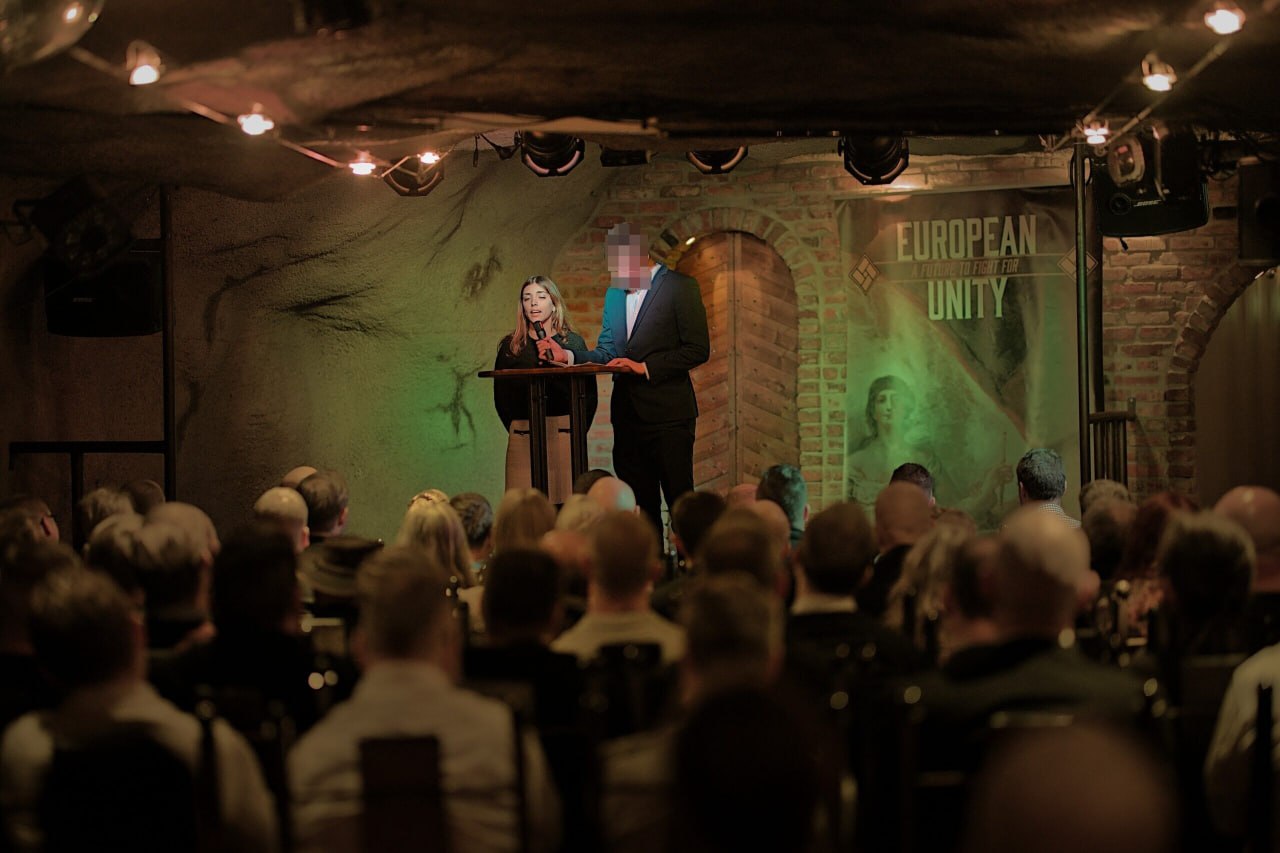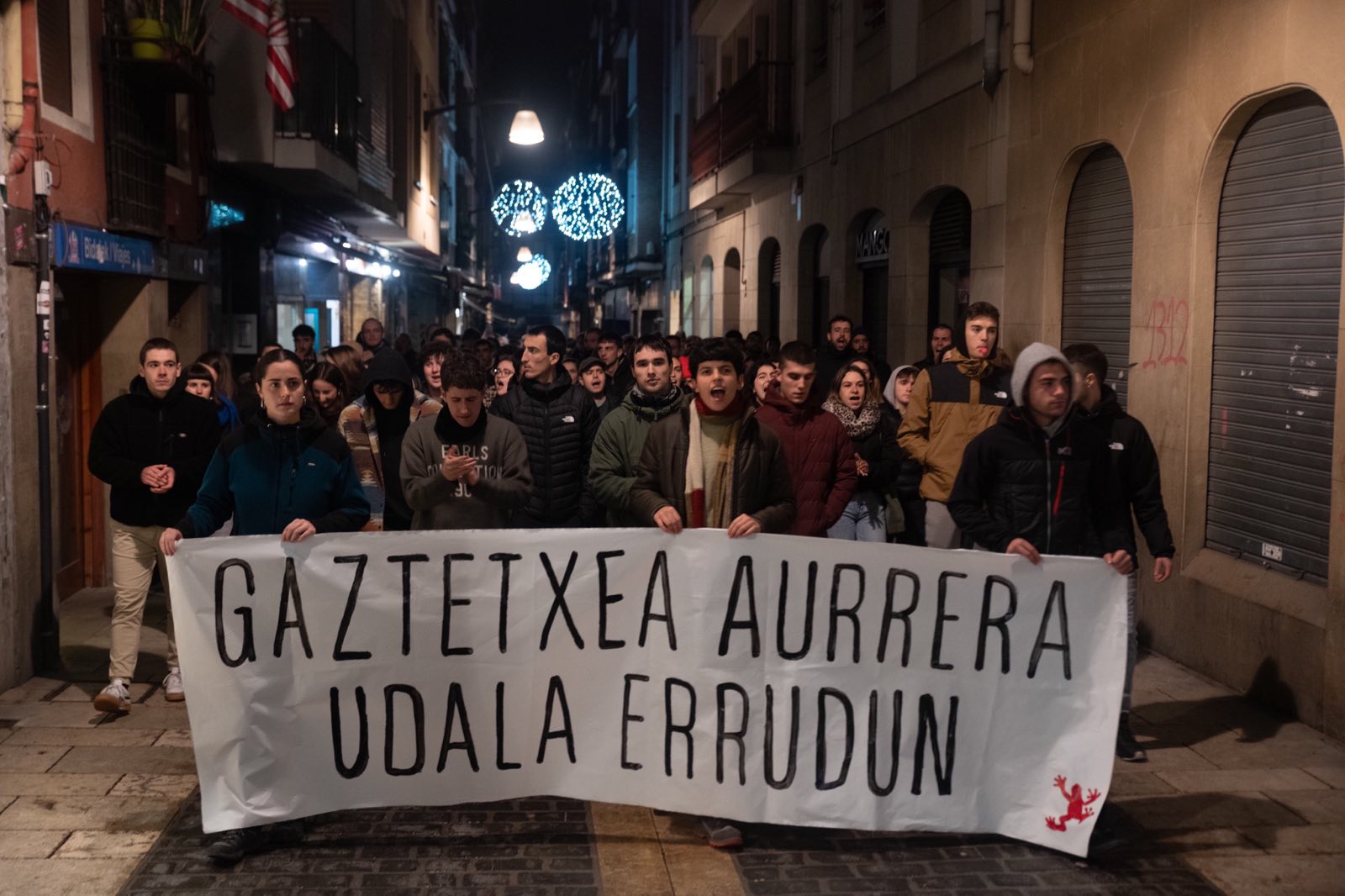Gaztetxeak, feminists?
- The eviction of the gaztetxe Marvels of Pamplona last January became a media eviction. On the one hand, because “change” generates contradictions and tensions within the actors, the elections have become manifest, setting in motion the interests of many parties. Likewise, the reaction to eviction was prolonged for a long time, with the help of different agents of the popular movement, which caused intense experiences and the street as a stage.

In the old town of Pamplona the kalejiras and noisy concentrations were repeated and the social agents showed different levels and words in favor of gaztetxe. The hotel owners of the plaza and numerous groups of the popular movement of the Region of Pamplona, on the one hand, showed their rejection of the eviction of the gaztetxe. Residents also strongly denounced the police occupation of the neighborhood. Also outside the neighborhood and the city there was a series of expressions of solidarity, some of which, beyond the words, were located outside the civic enclave. The two-way sections, the ones painted on the buses and the taped appearance of the Alsasua batzoki are significant. The mobilisation has found its core in the demonstration on 19 January in Bilbao. 6,000 people do not meet every day in the name of occupation and self-management. This reflects the trend throughout the Basque Country.
One of the most spectacular and interesting answers to the challenge of controlling an abandoned palace for years was the cutting of roads of the Bergel Bridge, near the gaztetxe. The action was claimed from feminism and performed by women, women, women and trans
One of the most spectacular and interesting answers to the challenge of controlling an abandoned palace for years was the cutting of roads of the Bergel Bridge, near the gaztetxe. The action was claimed from feminism and performed by women, women, women and women. Two girls hanging from the ends of the same rope to one side and the other of the bridge, cheering many people, especially young girls, patting and screaming at the gaztetxe. The scene was decorated with banners like “Destroy the heteropatriarchate, defend the gaztetxes” and “Feministok gaztetxekin”. The Municipal Police, the Foral Police, the National Police and the fire brigade took three hours to restore regular car traffic.
This action puts on the table, for reflection, the connection between gaztetxe and feminism.
On the one hand, the black-and-white filters that condition reality make gaztetxes, other occupied spaces, street incidents, etc., look like male spaces. Once again, the tendency of the participants to represent the child, white, straight and cis prevails in society. Questioning legality, opposing private property and breaking social peace cannot have anything to do with feminism. The average citizen cannot group these two subjects. The second is socially accepted, it's a worthy honor wrestler of this century. The first, on the other hand, is often linked to the spirit of the Pueril rebellion which does not adequately understand the political reality.
On the other hand, young people also reproduce macho behaviors, which worsens some noses. It can be said otherwise that there is no project or space in the popular movement totally free from the claws of patriarchy to practice, even more so in the case of groups or mixed spaces. Because there are no projects outside capitalism. More than Askegune, they're freedom labs that are free spaces, like "Askebideak." Talking about the reality of those who want to change the reality, the visibility, the ability to influence the collective, the power, after all, is not gender-neutral. Sometimes this is not supported. Often the greatest difficulty or the least desire to accept it is the privileged.
However, below all the prejudices and above all the macho attitudes, we have women, women, women and women who work as ants in the day-to-day life of mixed and non-mixed groups. You can't ignore it, because feminists have put themselves on the front line, saying that those "askebides" have their own space. Likewise, anti-system ideas and practices. They also say that they will defend them with their body, “quietly (…) without obeying their citizenship laws”.
Uxue Barkos is not a feminist. It's actually oxymoron. Defending private property, seeing nature as a resource of the productive system, sustaining and promoting capitalism above life: this is the patriarchy
In addition, in the context of this historical boom in feminism, the fruit of decades of feminist struggle, this action also sends a message to those who want to appropriate this word: that feminism is not compatible with hetero-patriarchal capitalism. That without a radical transformation, you cannot build a feminism that looks socially with good eyes. This presumed feminism is a violet capitalism that has already taken a few steps of forcefulness. Multinational companies that move millions thanks to the oppression of women’s labor rights put feminist slogans on t-shirts, the media measure the patriarchate to subdue wages and the feminist strike Uxue Barkos was “admired” on 8 March: “I marvel!”
Uxue Barkos is not a feminist. It's actually oxymoron. Defending private property, seeing nature as a resource of the productive system, sustaining and promoting capitalism above life: this is patriarchy. Heteropatriarchal capitalism prioritizes the scope of the market over the domestic sphere and care, attributing the former to men and the latter to women. To do so, the domestication of women, the hunting of witches, heteronormativity, repressed sexuality, the nuclear family. Oppression and violence in women, systemically.
It is a very clear and at the same time evasive idea, which is not the system on the one hand and patriarchy on the other, but the heteropatriarchal market. Reading face to face: every initiative that questions the system is necessarily feminist. And every feminist initiative calls into question the system as a whole, inevitably.
Pasa den asteko "kaleratze ilegala" salatu dute hainbat herritarrek, ostiral arratsaldean.
Manifestazio jendetsu batek herriko kaleak zeharkatu ditu, Poliziaren gehiegizko dispositibo batek zainduta, gazteek kudeatutako guneen defentsan eta Gaztetxeak erasoen aurrean defendatzeko. Manifestazioaren amaieran, publiko egin dute iragarpena.
Amenabar enpresak Bilboko Udalaren eskutik apirilaren 4rako agindu duten desalojoaren kontra azaldu dira bilkuran. Poliziak indarrez kanporatu ditu. Ostiral honetan18.30ean, Errekaldeko Plazatik hasiko den manifestaziora batzeko deia luzatu dute gazteek, baita desalojoaren... [+]
Bilboko Udalak eta Amenabar enpresak proiektu urbanistiko baten pean itxi nahi dute 10 urtez auzoko bizitza sozialaren erdigunea izan den topalekua. Horren aurrean, hiriko 55 kolektibok baino gehiagok manifestu bat sinatu dute prozesua gelditzeko exijitzeko.
Protestak 24 ordu bete dituenean, suhiltzaileak bertaratu dira udaletxera eta kateak moztu dizkiete bi gazteei. Bi kateatuek gaua bertan igarotzea "udaletxearen hautua" izan dela adierazi du Gazte Asanbladak, eta udalaren ordezkariek "ekintza deslegitimatzeko eta bi... [+]
EH Bildu agintean dagoen udalak gaztetxearen etorkizuna ziurtatzeko aterabide bat adosteari "uko" egin diola salatu du Burlatako Gazte Asanbladak. Beste hainbat gaztek udaletxe kanpoan kanpatu dute, eta goizean zehar bertara hurbiltzeko dei egin dute.
Iruñerrian bat egin dute hainbat Gazte Asanbladak, Burlatako Gaztetxearen alde. Etxarriren desalojoa gelditzera deitzeko, bestalde, manifestazio bat antolatu dute Bilbon hilaren 28rako.
Asteburu honetan hasiko da Gaztetxeak Bertsotan egitasmo berria, Itsasun, eta zazpi kanporaketa izango ditu Euskal Herriko ondorengo hauetan: Hernanin, Mutrikun, Altsasun, Bilboko 7katun eta Gasteizen. Iragartzeko dago oraindik finala. Sariketa berezia izango da: 24 gaztez... [+]
Errekaldeko Gaztetxearen aurkako huste-agindua heldu da jadanik. Espazioa defendatzera deitu dute bertako kideek.
Larrabetzuko Hori Bai Gaztetxeak 60 urte bete ditu. Euskal Herriko Gaztetxe zaharrena da Larrabetzukoa.








